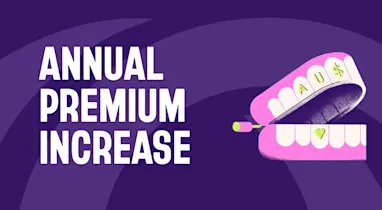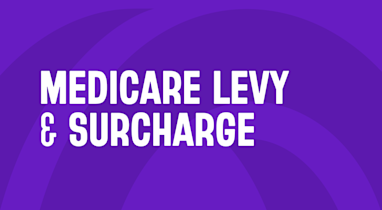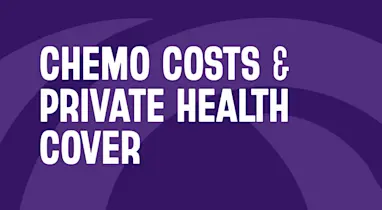less than
2 mins
Alcohol Addiction and Rehab: How Private Health Insurance Can Help
Thousands of Australians suffer with drug and alcohol addiction every year. While waiting lists for public rehabilitation services can be long, appropriate health insurance for rehabilitation can provide faster access to private addiction treatments you need – and cover some of the costs.
Key Points
Alcohol rehab often involves detox, counselling, inpatient care, and medical treatments, which can be expensive without private health coverage.
Medicare covers publicly-funded drug and alcohol detox programs, but waiting lists can be long.
Appropriate Private health insurance can help you access comprehensive in-patient treatments at private rehab facilities.
Most health funds impose a two-month waiting period for psychiatric and rehab-related services. However, if you’re switching insurance providers, you may not need to re-serve waiting periods.
How Does Drug and Alcohol Rehab Work In Australia?
A wide range of healthcare services are used for a comprehensive approach to drug and alcohol rehabilitation in Australia. These may include medical detox treatments, private rehab clinics, and mental health support such as individual or group therapy.
Generally, there are four common stages of drug and alcohol rehab treatment:
Detoxification (detox): A supervised process where the body eliminates the drug/alcohol. Detox can cause withdrawal symptoms and often requires medical assistance.
In-patient rehabilitation: Residential programs offering 24/7 care, including therapy, group sessions, and medical supervision.
Out-patient counselling: Flexible treatment allowing individuals to live at home while attending therapy and counselling sessions.
Aftercare support: Long-term support networks such as Alcoholics Anonymous (AA) or one-on-one consultations to prevent relapse..
How much does it cost for drug rehab in Australia?
The cost of private drug treatment in Australia varies depending on the service type and provider, and can be costly without private health insurance. Some indicative costs may include:
Type of treatment | Indicative cost* |
In-patient rehab (30-day stay) | $10,000 – $30,000 |
Detox program (7-10 days) | $3,000 – $5,000 |
Out-patient counselling (per session) | $150 – $300 |
Group therapy programs (per session) | $50 – $200 |
*This is a guide only. Actual treatment costs vary between service providers and the types of services offered.
Learn more about health insurance with these guides
What’s the difference between public and private addiction treatment in Australia?
Public drug and alcohol treatment services are typically funded by the government or delivered by public hospitals and non-profit organisations. These services may include assessment, counselling, withdrawal support, and pharmacotherapy.
Alternatively, private drug treatment is available via private clinics. They are often faster to access than public services, but typically come with higher upfront costs.
Does Medicare Cover Drug and Alcohol Rehab?
Medicare may cover publicly-funded detox and rehab treatments, but availability is typically limited and waitlists can be long. Some examples of Medicare-covered drug and alcohol rehab services may include:
Public hospital detox programs: Medicare covers publicly-funded detox and rehab treatments.
Out-patient counselling: Medicare may provide rebates for counselling sessions through a mental health care plan provided by your GPs. However, these rebates typically only cover part of the cost of the counselling sessions.
Specialist consultations: A Medicare rebate may be available for some addiction specialists, but you’ll likely need a GP referral to qualify.
ALERT!
Comprehensive care – such as in-patient programs at private facilities – generally isn’t covered under Medicare.
Does Private Health Insurance Cover Drug and Alcohol Rehab in Australia?
Private health insurance covers drug and alcohol rehab treatments that Medicare doesn’t – most notably in-patient care at private facilities (often referred to as ‘rehab centres’).
Depending on the specifics of your policy, private health insurance may provide coverage for:
In-patient treatments: Private rehab facilities offering detox, counselling, and other treatments in a supervised environment.
Doctor and specialist fees: Fees for consultations with addiction specialists or psychologists while in a recognised rehab facility.
Hospital accommodation: The cost of staying in a private hospital or treatment centre.
Mental health programs: Some policies include counselling and therapy for co-occurring mental health issues, such as anxiety or depression.
However, keep in mind that you may still need to pay an excess or gap fee.
What Type of Private Health Insurance Covers Drug and Alcohol Treatments?
To access private addiction treatment, you typically need a Gold-tier policy or a Silver Plus policy that includes cover for private services such as:
Psychiatric services
Rehabilitation services
Mental health treatments
Gold-tier policies generally offer the most comprehensive coverage, while some Silver Plus policies may include private mental health and rehab coverage at a more affordable price point.
Most Basic-tier or Bronze policies typically do not provide health insurance for drug rehabilitation services outside the public system.
What are the Waiting Periods for Rehab Services?
Most private health insurance policies have a standard two-month waiting period for psychiatric and rehab-related services.
If you don’t already have cover, you’ll need to wait until this period is served before accessing benefits.
Switching providers? You might not need to re-serve waiting periods if your previous policy included similar cover.
PRO TIP!
Health insurers are required to waive waiting periods for psychiatric treatments if you’re upgrading from a lower-tier policy to access immediate care.
Why Compare Policies for Rehab Coverage?
Not all private health insurance policies are created equal, particularly when it comes to mental health and addiction treatments. Comparing policies helps you:
Avoid Surprises: Ensure inpatient rehab and detox are covered under your policy.
Minimise Out-of-Pocket Costs: Some funds have agreements with private rehab facilities, reducing gap fees for treatments.
Access the Right Providers: Private health insurance lets you choose the facility and specialists that align with your treatment goals.
Comparing different insurers ensures you balance affordability with comprehensive care tailored to your needs.
Additional Resources
There are a number of Australian resources for anyone looking for support with alcohol or other addiction/s. Here's a list of helpful resources:
Want to find a good value health insurance policy that meets your needs? Compare Club’s experts have saved over 239,000 Australians an average of $295* by helping them compare health cover in the last 10 years.
What's new in health insurance?
Biggest hike in years: Health insurance premiums will rise by an average of 4.41% on April 1 — the largest hike since 2018 and noticeably higher than last year’s increase of 3.73% (in 2025).
Most Aussies face higher hikes: Compare Club’s data suggests that due to the five largest funds holding nearly 80% of the market, the average increase for the majority of policyholders is closer to 5.00%.
Review your policy: Now’s the time to check if your policy still fits—better deals could be available.
Frequently Asked Questions
Do Extras Policies Cover Rehab Counselling?
Yes, some extras policies cover services like counselling or psychological therapy for mental health conditions associated with addiction. Check whether your extras policy includes psychologists or counsellors and what limits apply to the number of sessions per year.
Can I Claim Rehab Treatment Immediately?
If you already hold a Gold or Silver Plus hospital policy that covers rehab, you can claim treatment straight away. However, if you’re purchasing insurance for the first time, expect to serve a 2-month waiting period for inpatient and mental health services.
Will Private Health Insurance Cover Ongoing Aftercare?
Appropriate private health insurance may cover long-term aftercare support (e.g., ongoing counselling or group programs). Medicare rebates may also assist.
Are Alcohol Addiction Treatments Confidential?
Yes. Both public and private rehab centres adhere to strict confidentiality and privacy regulations. Your details are only shared with your consent or where legally required.
COMPARE & SAVESources
Australian Institute of Health and Welfare
*$295 based on 239,107 sold over the past 10 years (From 2015 to 2024).
Related Article
Will Health Insurance help With Alcohol Addiction Rehab?
Things You Should Know
*As our customer you'll be provided with quotes directly from the insurer for the product you intend to purchase. We manage the application and deal with the administration work and insurer. We do not charge you a fee for the service we provide, the insurer simply remunerates us in return for setting up your policy. The financial and insurance products compared on this website do not necessarily compare all features that may be relevant to you. Comparisons are made on the basis of price only and different products may have different features and different levels of coverage. Compare Club does not compare all policies available in Australia and our partner insurers may not make all policies available to Compare Club.
This guide is opinion only and should not be taken as medical or financial advice. Check with a financial/medical professional before making any decisions.
Chris Stanley is the sales & operations manager of health insurance at Compare Club. With extensive experience and expertise, Chris is a trusted leader known for his deep understanding of health insurance markets, policies, and coverage options. As the sales & operations manager of health insurance, Chris leads a team of dedicated professionals committed to helping individuals and families make informed decisions about their health insurance needs.

Meet our health insurance expert, Chris Stanley
Chris's top health insurance tips:
- 1
Australia’s public health system is world-class, but wait times for public hospitals can be long, inconvenient - and leave you living in constant pain while you wait.
- 2
An appropriate private health insurance policy can speed up your surgery, relieving your pain sooner.
- 3
Family health cover means your children are covered under the same policy as you.
- 4
Many health insurance policies come with a 12-month waiting period for pregnancy-related cover, so it’s a good idea to get a family policy organized well before starting your family. This means your child will be covered from birth until at least their early twenties (depending on which health fund you select).




